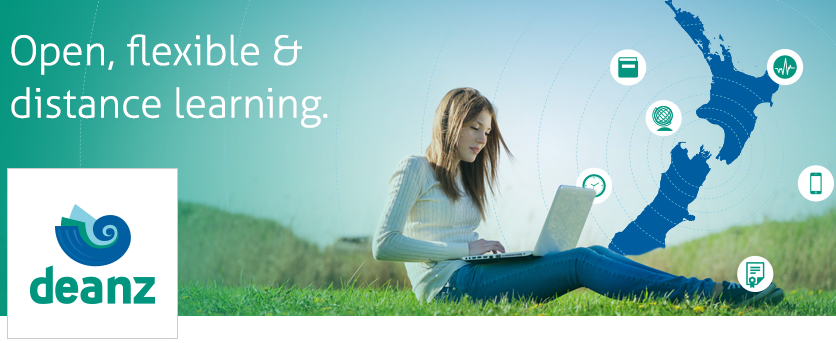A recent article in the journal Open Learning considers some of the quality and reputational challenges facing open, distance and eLearning (ODeL). Anne Gaskill and Roger Mills are two prominent UK authors, both with previous and long-standing experience with the Open University UK. Reading their article isn’t a pre-requisite for this post!
In the article it was interesting from the outset to see ODeL (Open, Distance, eLearning) as the catch-all term for education alternative to on-campus or face-to-face settings in the article. DEANZ uses OFDL (Open, Flexible, Distance Learning), for reasons broadly outlined in this JOFDL editorial. Whether ‘Distance’ and ‘eLearning’ should be considered related is a perennial problem. The long and short of it is, our terminology and categorisation of education practices using online tools is very problematic. I’ll come back to this point later in the post.
One good thing about the Gaskill & Mills article is that it explores four major challenges that remain for many who critical of ODeL:
- The quality of teaching, learning and quality processes.
- Outcomes.
- Access.
- Perceptions of students, staff and employers.
Gaskell & Mills point out the significant progress that has been made in these four areas based on established practice, and they offer some valuable citations useful for OFDL (or ODeL?) practitioners seeking to justify their actvities. The article then speculates on the contribution of OERs and MOOCs to ODeL. It’s the MOOC aspect I’ll be exploring from here on.
Gaskell & Mills question the contribution MOOCs are making to the questions of quality, outcomes, access, and perceptions. MOOCs, they point out, are not known for quality (video lectures!?!); outcomes (very poor completions); and access (MOOCS are mainly attractive to those already highly educated). The authors do not explore the issue of how MOOCs are perceived, which is actually rather complicated. There are very mixed views of the value of MOOCs across those involved in higher education. A recent Ontario Online Learning Portal for Faculty & Instructors post provides a fairly appreciative view. The work of Tony Bates (see his chapter on MOOCs here, for example – and an appropriate rant here) provides a very comprehensive view. Tony also provides a bibliography for those interested in exploring things further, to which I would add the excellent 2014 special issue of Distance Education.
All of this is provides a fascinating area of research and debate. Let me provide my own views in the form of statements, each open to challenge.
- MOOCs in their original form (be they cMOOC or xMOOC) cannot provide a sustainable or equivalent alternative to formal education. The evidence for this is already in.
- MOOCs are more aligned with the paradigm of informal lifelong learning, than that of formal education.
- As MOOCs continue to mature, they will become less Massive and less Open (we are already seeing this).
- MOOCs (and their offspring) will, at their best, eventually resemble online distance education programmes.
It is very easy for tertiary educators to embark on distance education and eLearning. The problem is, if distance education and eLearning are implemented easily, it normally follows that they are executed poorly. I suspect that MOOCs were an attempt to embark on ODeL in an ‘easy’ way, or at least an intuitive one (see Daphne Koller’s first TED talk responsible for much of the hype). The adoption of the term ‘MOOC’ also implied something new and unencumbered from existing practice and thought. Unfortunately, MOOCs demonstrate what distance education and eLearning could achieve without reference to any of the lessons learned from decades of related theory and practice. As the lessons from MOOCs are coming in, it is clear that classic distance education theory maintains its relevance.
Coming back to my earlier point about definitions and categorisation. MOOCs are, in my view, no more than an expression of distance education and eLearning. As such, MOOCs do not escape the constraints, opportunities, pedagogies and systems that distance education and eLearning theorists have already debated and discovered. It is for this reason that I believe MOOCs will increasingly resemble online distance education programmes. They have no ontological alternative!
So, are MOOCs new? The acronym was; the provision of course materials online in video-based chunks, reinforced by multiple choice questions wasn’t. The lessons emerging from the great MOOC experiment are of no surprise to those who have been involved in ODeL for some time. Do MOOCs provide a contemporary challenge to ODeL? Not at all; instead, MOOCs are another example of ODeL in action… just not a very good example.











